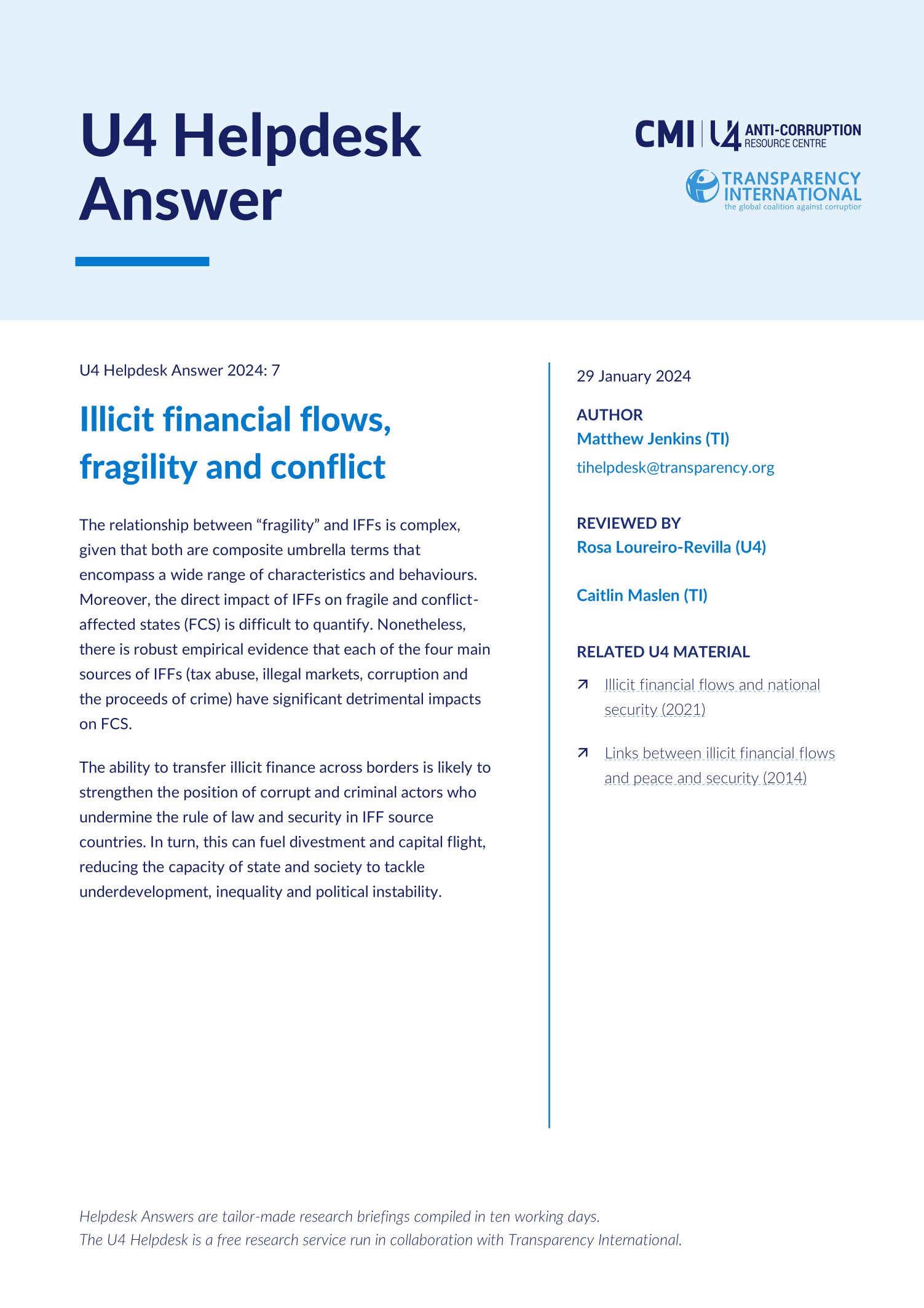Main points
- In financial terms, economists concur that IFFs inhibit domestic capital accumulation, reduce productivity, discourage investment, and erode government revenue
- Countries are deprived of much-needed funds that could fund the provision of social welfare and spur the kind of economic growth that could help societies escape the “fragility trap”
- States with high levels of capital flight spend an average of 25% less on health and 58% less on education than countries with low levels of capital flight
- IFFs have negative ramifications beyond the economic sphere, undermining the quality of political institutions, reducing social cohesion, increasing inequality, accelerating environmental degradation and fuelling armed conflicts
- IFFs exacerbate drivers of fragility that, in turn, create conditions conducive to further illicit outflows, indicating a mutually-reinforcing “circular relationship between IFFs, development-inhibiting economic policy environments and weak political institutions”


